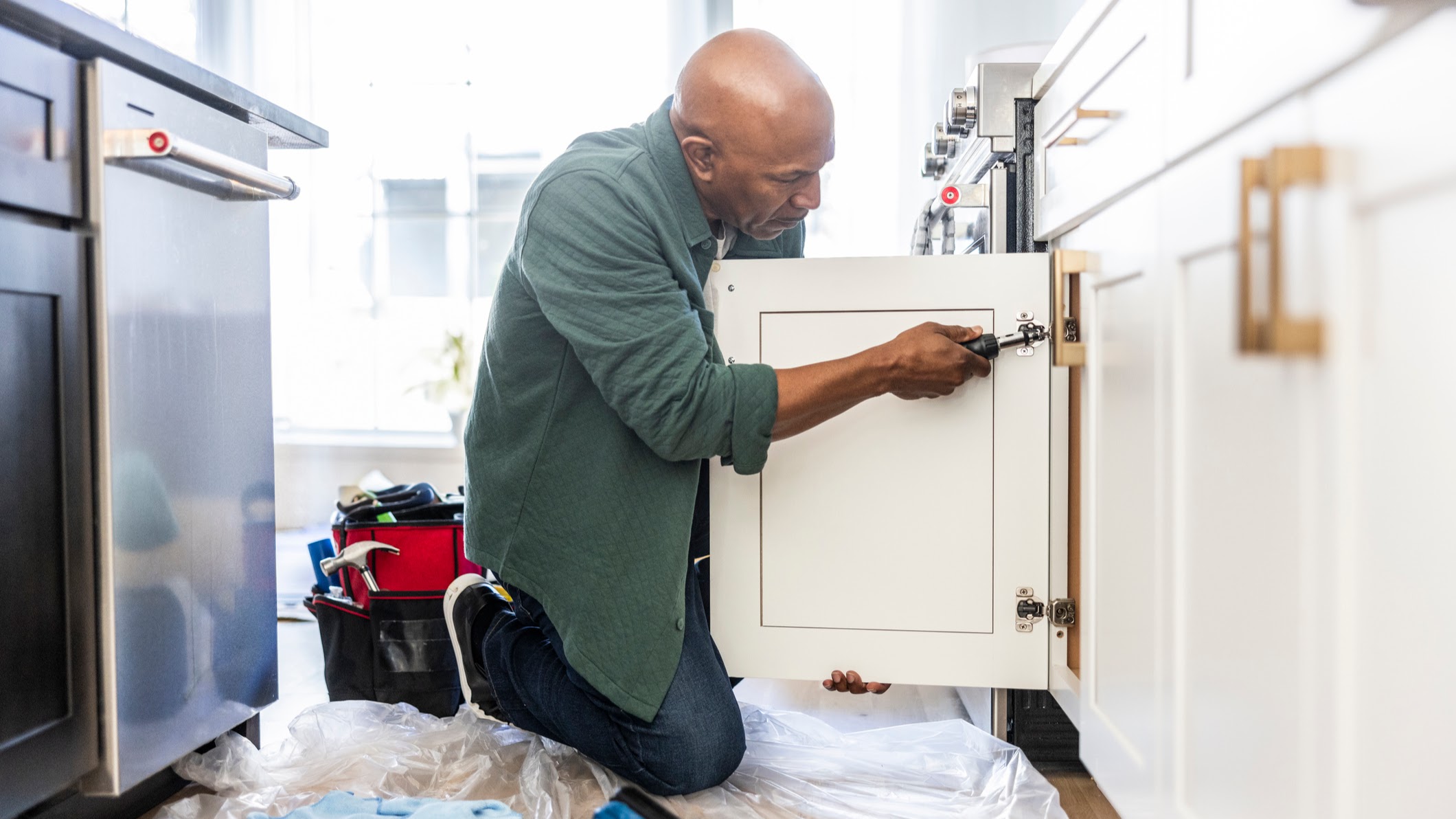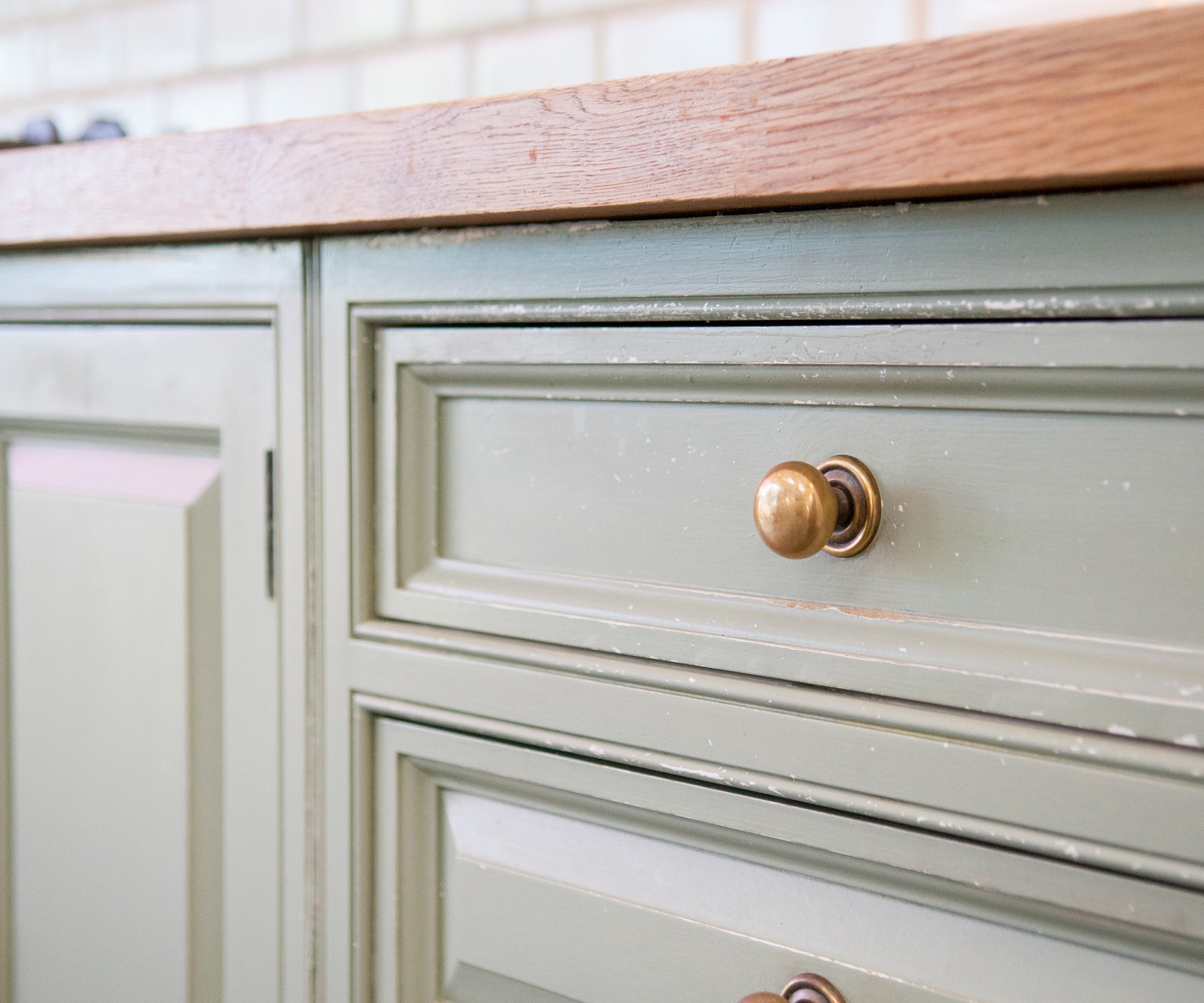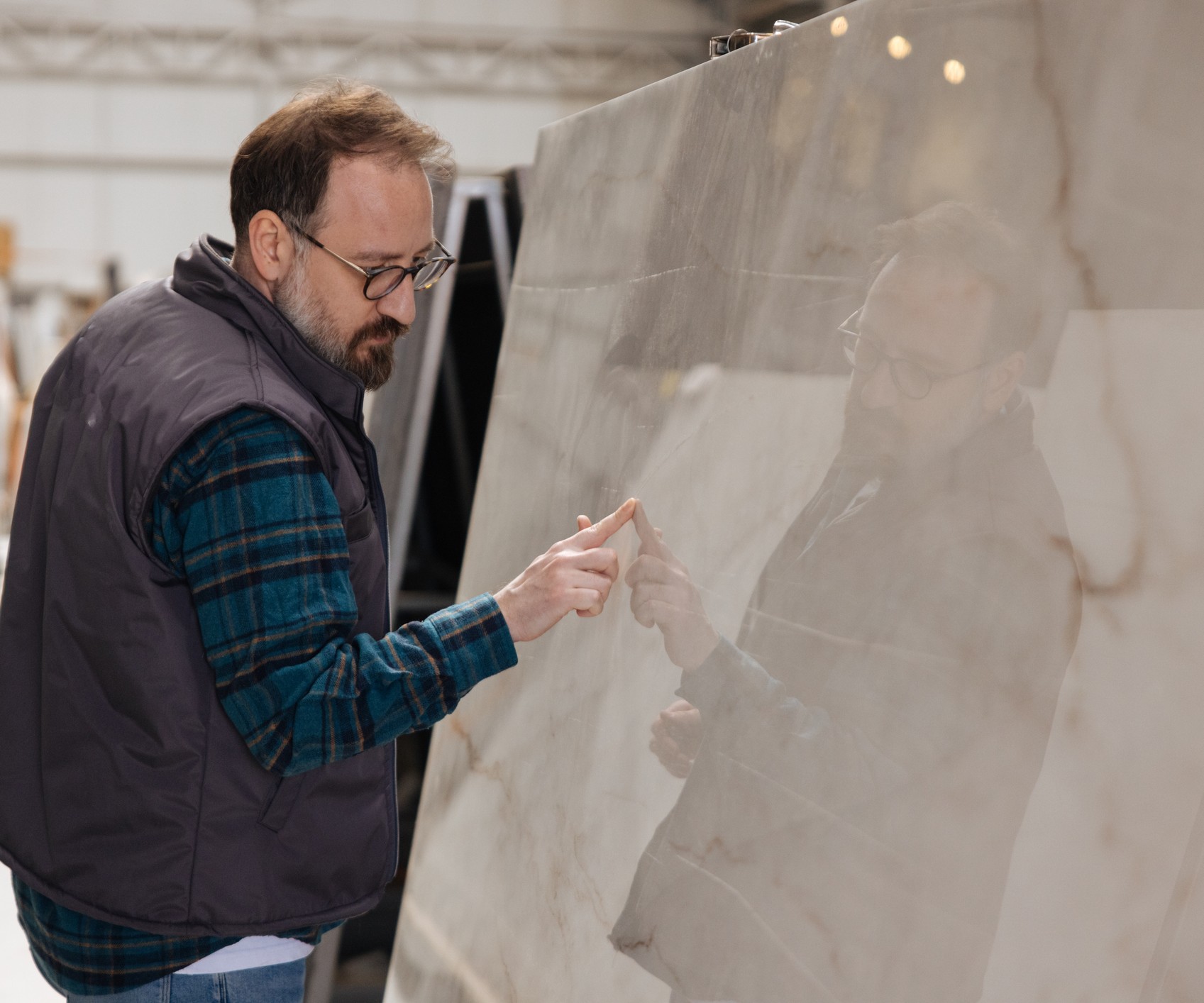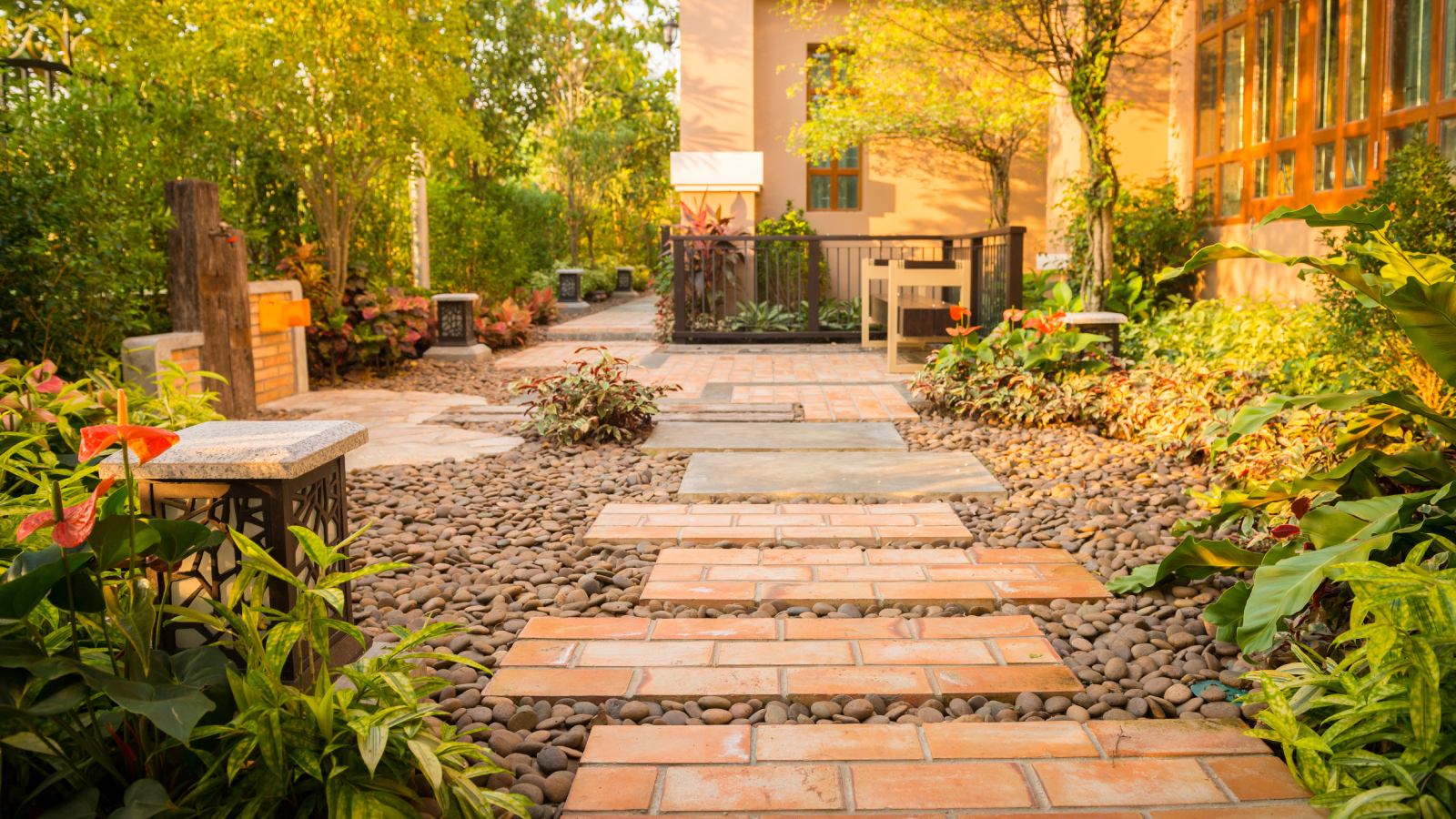What is the cost of replacing kitchen worktops? Our expert explains
We explain the budgetary requirements for updating work surfaces to revitalise your cooking space

The longer you’ve had your current kitchen worktops in place, the greater the potential benefit of replacement. Heavily used and highly visible, these elements of your kitchen design become more worn over time – leaving you with a tired-looking kitchen.
Replacing kitchen worktops, and potentially also unit doors, is a sure way to refresh the look and feel of a kitchen, and it’s also a great opportunity to alter the style of the space without splashing out on a full renovation.
Still, the costs of worktop replacement can be considerable, with factors such as design, materials, quality and installation (DIY vs professional) all significantly affecting the total amount you’ll pay.
We interviewed Fix Radio presenter (and DIY expert) Clive Holland, and Laminam UK Managing Director, Gavin Shaw, to help you get a handle on the likely costs of this revitalising kitchen project.
Average cost of replacing kitchen worktops
According to Checkatrade, the average cost of having a kitchen worktop replaced professionally (materials and labour) ranges from £750 to £1,900 per 5 sq. metres, depending on the type and grade of material.
Meanwhile, taking a DIY approach could remove labour costs from the equation, greatly reducing the project cost (while increasing the challenge).

Where to source kitchen worktops
One of the most significant costs involved in replacing kitchen worktops is that of the items themselves.
While there are numerous options for sourcing worktops, most of these can be divided into one of two categories:
Off-the-shelf
You can pick up ready-to-fit kitchen worktops at reasonable prices from several widely known hardware and home improvement retailers.
Screwfix is a good choice for sourcing affordable off-the-shelf kitchen worktops, with over 100 options costing as little as £65 for a 1800mm x 620mm x 28mm piece.
You can also get premium off-the-shelf worktops from providers such as Moderne.
Bespoke
Choosing bespoke kitchen worktops will give you more control over the fine detail of your partial kitchen renovation, allowing you to use non-standard dimensions and accommodating features such as holes or cut-outs in a worktop.
Bespoke options are usually more expensive, but budget made-to-measure options are available from providers such as B&Q.
Higher-end bespoke providers include Laminam while premium options are often handmade by craftspeople such as joiners, or made from specialist materials such as the granite used in Cambrian Granite worktops.
How to choose replacement kitchen worktops

Sizing
If you’re happy with the dimensions of an existing worktop’s surface, then the same measurements can be used for the replacement piece. If not, you might have the option to install a larger section that provides more workspace for food prep, or a smaller worktop that leaves more room for other elements such as hob space.
Think about the thickness of your new worktop. A thicker profile can provide strength, longevity and some visual appeal, while thinner worktop sections are generally cheaper, and they put less strain on the component or fixings supporting them.

Clive Holland is the former host of Cowboy Trap on the BBC. Now a broadcaster on Fix Radio, the UK’s only national radio station for builders and tradespeople, Holland is one of the UK’s leading property and DIY experts.
Materials
The materials of your replacement kitchen worktops make a difference to functionality, ease of upkeep and cost.
“These days, when it comes to replacing kitchen worktops, the world is the consumer’s oyster,” says Holland.
Here’s a quick summary of the most popular materials and their pros, cons and relative expense:

Gavin Shaw is MD of Laminam UK, a producer of high-quality ceramic slabs for kitchen worktops and other applications. Shaw has over 20 years’ experience as a company director in the stone surface industry, with expertise across porcelain, quartz and natural stone.
| Material | Pros | Cons | Cost |
| Laminate | Easy to fit and maintain | Vulnerable to scratching | Low |
| Wood | Often beautiful | Requires oiling to prevent water damage | Mid |
| Porcelain | Highly durable; low-maintenance | Non-traditional aesthetic won’t suit every kitchen | Mid-high |
| Quartz | Beautiful options available; highly durable | Not entirely heatproof | High |
| Granite | High resistance to heat and damage | Very expensive | High |
“While budget-friendly worktops might start at a few hundred pounds, high-quality surfaces may cost upwards of several thousand pounds for a bespoke installation,” says Gavin Shaw, Managing Director of Laminam.
“High-quality porcelain surfaces can elevate the aesthetic and functionality of the kitchen, with prices of Laminam porcelain starting at £410 per square metre for a 12mm surface that has exceptional durability, a timeless aesthetic, and low maintenance requirements.
“Premium surfaces can cost several thousand pounds or more for a custom installation,” he adds.
Meanwhile, Holland recommends covering existing worktops with quartz, rather than removing and replacing them.
“Quartz overlay worktops offer a fantastic way to transform your kitchen without the upheaval of a full kitchen renovation or makeover,” he says. “They combine durability, aesthetics and cost-efficiency, making them an excellent choice for homeowners looking to refresh their kitchen space.”
Costs of installing new kitchen worktops
Professional installation
Having your replacement kitchen worktops installed by a professional is going to increase your overall project cost. However, this approach tends to provide a higher standard of installation, saves effort, and does not require you to purchase or hire expensive tools.
Kitchen worktop fitting costs, can vary greatly between contractors. If you wanted to replace 5 metres of wooden worktop, the average total cost would be around £700. However, in certain cases you could spend far more (or less) than those amounts.
“Factors influencing cost include the size of the kitchen, the complexity of the design, and any customisations,” says Shaw.
“You might save money by simplifying your design or reducing the amount of material needed – for example, by reducing the number of slabs in a worktop.”
If you’re buying bespoke, you might be able to secure a preferential rate by getting the same company (or craftsperson) that made the worktops to fit them too.
DIY installation
Installing your own replacement kitchen worktops can bring your labour costs down to zero – although it’ll require an investment of time and effort.
Purchasing tools contributes significantly to the cost of worktop installation. For instance, you may require a circular saw such as the Ryobi R18CSP-0 (£77, Amazon) for cutting a worktop down to size (plus special PPE and a diamond-edged blade if cutting certain materials such as granite). The more tools you own already, the less significant this cost will be.
Materials needed for your replacement kitchen worktops are another key cost. The budget required will vary depending on quantity, quality, type of material whether you choose a bespoke or off-the-shelf provider, and which accessories you choose (e.g. trivets or heat pads for quartz worktops).
Finally, you’ll spend a relatively modest sum on finishing products, such as Osmo Top Oil (£24, B&Q) for wood worktops. It's also worth mentioning that some worktop materials can be hazardous for DIYers to attempt. Cutting quartz or routering edges for instance must always be completed with professional grade PPE.
Saving money on kitchen worktops is certainly great in the short term, but you should bear in mind that your choices at this stage will have a financial effect in the future.
“While it may be tempting to opt for a cheaper material for your kitchen worktops, such as laminate or wood, these materials can quickly show wear and tear and may need to be replaced sooner than expected,” says Shaw.
“Choosing a worktop made of a premium and sustainable material, such as porcelain, may require more budget – but the investment will pay off in the long run and the worktop will be able to be enjoyed for many years to come.”
Want more kitchen inspiration? Check out our wooden kitchen ideas as well as our guide to replacing kitchen unit doors.
Get the Homebuilding & Renovating Newsletter
Bring your dream home to life with expert advice, how to guides and design inspiration. Sign up for our newsletter and get two free tickets to a Homebuilding & Renovating Show near you.
Pete Wise is a freelance writer and keen DIYer from Leeds. Pete's tool reviews have featured in titles including Homebuilding & Renovating, Ideal Home and The Independent. He also writes features and news articles for publications such as The Guardian, BBC Good Food and T3. When he isn't busy writing, Pete can often be found at libraries, pubs and live music venues. He finds tile-cutting strangely zen.

